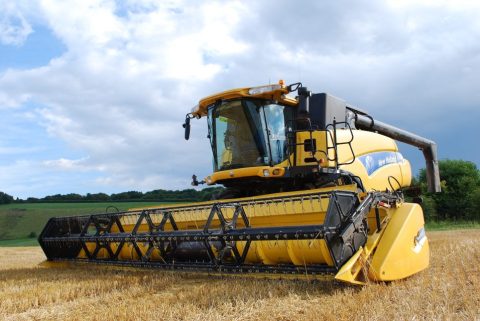What if both sides are right? The case of duties on Ukrainian exports

27 January 2023
The Ukrainian Agrarian Council (UAC) appealed to the European Parliament’s Committee on Agriculture and Rural Development, requesting the continuation of the duty-free regime applied to Ukrainian agricultural produce exports. The appeal came as a response to Polish claims that the country will demand the EU reinstate customs duties on Ukrainian corn and other agricultural products that enter the country.
“The cancellation of the preferential regime for Ukrainian producers in the context of war […] is a blow to the state’s economy and a threat to the future of Ukraine”, said to the committee Andriy Dykun, the head of UAC.
On his behalf, Norbert Lins, MEP and head of the Committee on Agriculture and Rural Development, responded that the EU acknowledges the harm that Ukrainian duty-free exports cause to Poland’s domestic market. “The export of Ukrainian grain brings down the prices of their products, which is a real problem, so we will look for ways to solve this issue and tools to compensate for the losses of Polish farmers to continue to help Ukraine”, he said.
The duties short chronicle
On 19 May, the European Parliament voted in favour of suspending EU duties on all Ukrainian exports. The measure was initially implemented on import duties on industrial products, entry duties on fruit and vegetables, and anti-dumping duties and safeguard measures on steel imports for one year. Later, on 4 June, the duty-free regime was implemented on all Ukrainian exports, including agricultural products, with a validity period until 5 June 2023.
Since day one of the new regime, Polish agricultural producers have expressed concerns about the outcome of its implementation. In late May, Agrounia, a Polish agrarian political movement, pointed out to domestic media that helping Ukraine is desirable, but importing Ukrainian produce could kill Poland’s production and agricultural market.
It wasn’t long until those voices became more vocal and demanded the re-introduction of customs duties to Ukrainian products. In mid-January 2023, the Polish deputy minister of agriculture, Janusz Kowalski, clarified that despite pressures, no duties would be applied on grain exports. However, he highlighted the possibility of introducing duties on corn and other products. “I will persuade the entire Polish government to protect the interests of Polish farmers and demand from the EU financing of warehouse infrastructure or compensation to farmers who suffer losses due to geopolitical reasons”, he stated on Polish media.
Indeed Kowalski plans to submit an official request to the EU council ministers of agriculture on 30 January. He also claims that Poland will have a coalition of other states, like Slovakia, Hungary, Romania and Bulgaria, backing its request.
A fiasco or calculated risk?
The fact that concerns regarding the impact that Ukrainian duty-free exports would have in domestic EU markets were raised quite early, combined with the EU’s admission that the regime harms Polish farmers, is possibly indicative of two scenarios.
The first scenario could speak of a total political fiasco. The EU was well aware of the impact that such a liberalisation move could have on European agricultural markets but, nevertheless, implemented the decision in an attempt to alleviate Ukraine during the critical first months of the war. One could blame the EU for a miscalculation that left farmers struggling in Poland and the Polish government seeking a drastic solution.
On the other hand, though, this could also be a calculated risk. It is hard to imagine that the EU did not consider the possible drawbacks when implementing such a decision. After all, that is why the duty-free period was implemented for one year, not indefinitely, or at least until the war’s end.
Emergency solutions sometimes entail taking risks, and this could be a risk the EU was willing to take. However, it now finds itself in a dilemma. What happens when both sides are right? Considering the efforts made by transport companies and rail freight in the past months to keep Ukrainian exports running and the future transport potential that the established export corridors might have, the EU should deeply analyse the Polish request and possibly find a middle-ground solution to assist both sides.
morenews
Networking dinner 1
Networking dinner Networking is the most crucial element of RailFreight Summit! On the evening of 16 April 2024 from 18:00-21:00, a networking dinner will take place. This seated dinner offers the perfect opportunity to get together with your fellow industry professionals in a formal setting. Enjoy a multiple-course dinner, and drinks while making important new… Read more ›
How can this new terminal boost EU-Balkans intermodal transport?
On 19 April, Rihard Dobo will also speak at the RailFreight Summit Poland. He will explain the significance of the Horgos Terminal project and its potential to boost intermodal traffic to and from the Western Balkans and the broader southeast Europe region. The Serbia-Hungary bottleneck “As Serbia and the wider Western Balkan region is not… Read more ›
Malaszewicze upgrade may be financed by Polish government
The EU has in fact decided not to fund the modernisation project planned in the Małaszewicze Transshipment Area. The area includes the terminals Kobylany, Małaszewicze, Bór, and Chotyłów. This project was put on hold, waiting for possible public funds, which now may be on their way. To see this crucial transshipment area with your own… Read more ›
